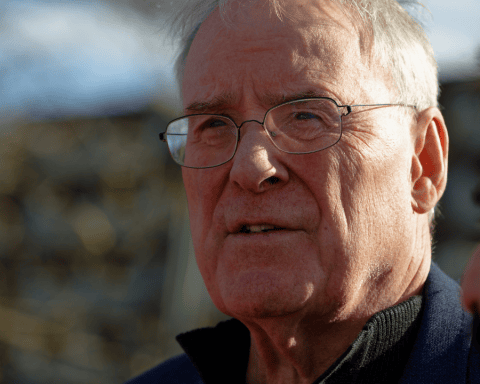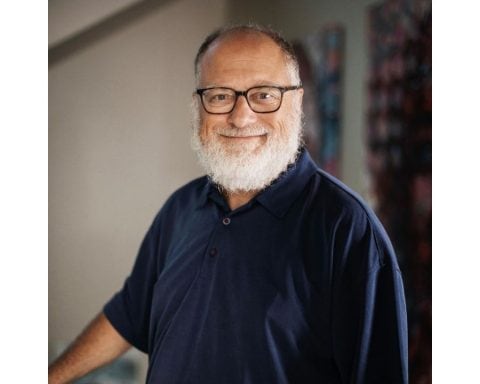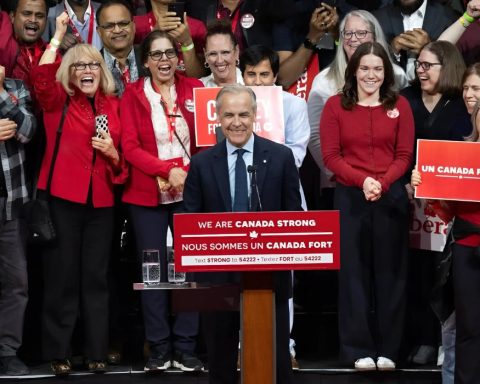The following is an excerpt from the eulogy delivered at John Godfrey’s funeral. The journalist and politician died on Dec. 18, a day before his 81st birthday.
We have all lost a wonderful friend, father and husband, and we miss him dearly.
John was a thoughtful and accomplished man, who lived at least nine separate careers – and that’s just last year.
He was an unusual, but highly effective politician. Unusual in the sense that John, although with deep liberal values, never developed a partisan edge. I quickly learned this when we first became friends, early in both of our political careers, when we worked together to restore funding for purpose-built daycare centres in schools that the newly elected Ontario conservative government had cut.
As federal minister of state for infrastructure and communities, John was charged with crafting the New Deal for Cities, an election commitment for significant federal – city funding made by then-prime minister Paul Martin. As mayor of Toronto, I worked closely with John. Creating this New Deal for Cities was much more difficult than it sounds, for at least three reasons: first, no-one knew what it meant; second, there are only a few large cities in Canada – but many towns; and third, provincial governments – and the federal public service - viewed cities as a provincial matter.
Giving shape to a good idea in this context was not an easy task – but one to which John was ideally suited because he listened, built consensus – and then had the ability to act and make change. While the argument that Canada was increasingly an urban nation that could not succeed economically, socially, or environmentally without its cities succeeding was undoubtably correct, it took all of John’s skills to change minds stuck in Canadian constitutional conventions.
John, again, demonstrated his strategic and practical guidance throughout all the hard work it took for us to get Canada-wide municipal support and the New Deal (consisting of a share of the gas tax and specialized programmes for large cities and smaller towns respectively) passed into law.
His work to get broad consensus paid off and the gas tax funding still flows today, benefitting millions of urban residents, despite the election of a cost cutting conservative government a few years later. As an example of its importance, in Toronto’s case, the billions of dollars of funding were used for investments in public transit and within three years TTC ridership was at its highest levels ever.
We can see his influence in Canada’s work on climate change. John has always been passionate about the natural environment, including his love for wilderness canoeing. John personally ensured that cities and towns had to have climate plans to be eligible for funding nearly 20 years ago, at a time that climate change was only emerging as an issue for local governments.
John was the climate czar for the Ontario government under Kathleen Wynne. That work led him to realize that we needed to model very local climate impacts – at the neighbourhood or factory level – to help governments, institutions and businesses develop adaptation plans. Undeterred when the election brought in a new government that had no interest in addressing climate change, John resigned, but went ahead anyway, with no mandate, no support and no money. All he had was his energy, wisdom and charm.
His approach was to find the right partners - climate scientists, economists, engineers, and more - and bring them together. He told me with some excitement – and astonishment - “David, the University of Toronto has all the world leading experts we need but they don’t even talk to each other!”
They soon did. John pulled together the university’s experts and had them hired to advise a large power plant about the risks it faced due to localized climate impacts.
At the same time, in his capacity as a fellow at Massey College, he mentored young professionals using IT in the climate area. For example, he helped guide Pharos, a company that helps infrastructure and natural resource businesses access climate, weather, and satellite data so they can quantify their physical climate risk.
In this, he was very forward looking. And looking back over so many of his accomplishments, the same is always true: they were very forwarding looking indeed.
One of his mentees, Bardia Monavari, wrote his own thoughts about John’s passing. They perfectly express what so many of us are feeling about John, and with Bardia’s permission I would like to leave you with his words:
Over the last six years, John was a life mentor to me, a career and business advisor, a squash partner, a walking and lunch companion.
But above all, he was my friend.
And I will spend the rest of my life trying to espouse the simple yet profound philosophy of John: be kind, be curious, and always find the humor and joy in our world.
Thank you, John. For everything.





